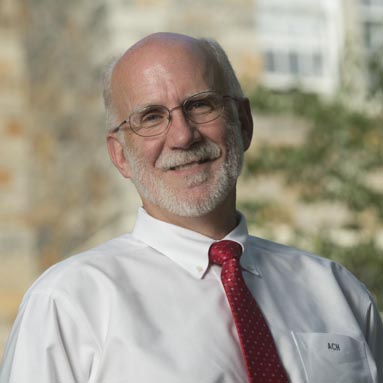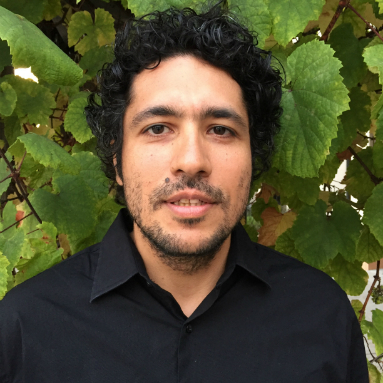Lifelong Project Impact



WPI’s distinctive project-based educational model has been praised by the most recognized and valued resources in the academic world, as well as by those who know the benefits of a WPI education firsthand—WPI students and alumni.
While we’ve never had any doubt about the value of this method of education, we now have powerful empirical evidence of its effectiveness—an extensive study of more than 2,200 WPI alumni, conducted in 2021 and 2012, has confirmed that there are lifelong professional and personal benefits of experiential, hands-on learning through project work. The 2021 study including 40 classes of WPI alumni from 1980 to 2019, asked about skills, mindsets, and experiences WPI alumni might attribute to their projects—and the findings demonstrate significant impacts on their lives and careers.

WPI Receives Three Prestigious Awards Celebrating Project-Based Learning—Lauded as a Model for Other Higher Ed Institutions
Student project team working from WPI's Monteverde, Costa Rica Project Center
WPI is honored to receive the 2023 Institute of International Education (IID) Andrew Heiskel Award for innovation in student mobility and expanding access to global projects. The award promotes and honors outstanding initiatives in international higher education by recognizing innovative and successful programs such as WPI’s Global Projects Program—a signature component of WPI’s project-based learning model that facilitates student travel to more than 50 project centers around the world.

Student project team working from WPI's Iceland Project Center
In recognition of WPI’s commitment to immersive global experiential learning, NAFSA: Association of International Educators selected WPI as a winner of the NAFSA 2024 Senator Paul Simon Spotlight Award for Campus Internationalization. This award celebrates WPI's efforts to maximize student participation in the Global Projects Program—a signature element of WPI’s project-based learning that gives students the opportunity to complete required research projects off-campus at 50+ WPI project centers worldwide.

Undergraduate students conducting hands-on research
WPI is the proud recipient of the esteemed Council on Undergraduate Research (CUR) 2023 Award for Undergraduate Research Accomplishments (AURA). A leader in experiential undergraduate education and research excellence, WPI’s holistic and deliberate approach to project-based education integrates research and design experiences into the entire curriculum, building a scaffold of various research projects throughout a student’s journey.
Student project team working from WPI's Monteverde, Costa Rica Project Center
WPI is honored to receive the 2023 Institute of International Education (IID) Andrew Heiskel Award for innovation in student mobility and expanding access to global projects. The award promotes and honors outstanding initiatives in international higher education by recognizing innovative and successful programs such as WPI’s Global Projects Program—a signature component of WPI’s project-based learning model that facilitates student travel to more than 50 project centers around the world.

Student project team working from WPI's Iceland Project Center
In recognition of WPI’s commitment to immersive global experiential learning, NAFSA: Association of International Educators selected WPI as a winner of the NAFSA 2024 Senator Paul Simon Spotlight Award for Campus Internationalization. This award celebrates WPI's efforts to maximize student participation in the Global Projects Program—a signature element of WPI’s project-based learning that gives students the opportunity to complete required research projects off-campus at 50+ WPI project centers worldwide.

Undergraduate students conducting hands-on research
WPI is the proud recipient of the esteemed Council on Undergraduate Research (CUR) 2023 Award for Undergraduate Research Accomplishments (AURA). A leader in experiential undergraduate education and research excellence, WPI’s holistic and deliberate approach to project-based education integrates research and design experiences into the entire curriculum, building a scaffold of various research projects throughout a student’s journey.
Student project team working from WPI's Monteverde, Costa Rica Project Center
WPI is honored to receive the 2023 Institute of International Education (IID) Andrew Heiskel Award for innovation in student mobility and expanding access to global projects. The award promotes and honors outstanding initiatives in international higher education by recognizing innovative and successful programs such as WPI’s Global Projects Program—a signature component of WPI’s project-based learning model that facilitates student travel to more than 50 project centers around the world.
WPI Alumni Report Project Work Has Powerful Long-Term Professional and Personal Impacts
In the 2021 alumni survey—analysis conducted by Hanover Research—alumni were asked to rate the extent to which their project work contributed to 39 professional skills and abilities, world views, and personal attributes. Respondents from this survey reported significantly greater impact from formal project experience across all 39 areas as compared to alumni surveyed in 2012 regarding the same 39 attributes. The survey also revealed that alumni who completed a project off-campus at one of our domestic or international project centers reported more positive impact than alumni who did not.
Additional key findings from the 2021 survey revealed that:
- Women alumni reported more positive impact of project work than men in all 39 areas, with the most notable differences in world views and personal impacts.
- 95% of respondents reported that their project experience prepared them for their current career.
- In addition to major project requirements, 98% of respondents indicated they had projects in at least some of their courses at WPI.

A 2021 study including 40 classes of WPI alumni, from 1980 to 2019, asked about skills, mindsets, and experiences alumni might attribute to their projects—and the results were powerful. In this video series, hear from WPI alumni and students alike about how their WPI project-based education has had a lifelong impact on their professional and personal lives, as well as their world views.
- WPI Alumnus '12
- Biomedical Engineering
- WPI Alumnus '00
- Electrical Engineering
- WPI Alumnus '85
- Chemical Engineering
- WPI Alumnus '10
- Industrial Engineering
- WPI Alumnus '12
- Biomedical Engineering
- WPI Alumnus '00
- Electrical Engineering
- WPI Alumnus '85
- Chemical Engineering
- WPI Alumnus '10
- Industrial Engineering
- WPI Alumnus '12
- Biomedical Engineering
WPI has More than 50 Years Experience with Project-Based Learning—Meet Our Experts



Professor Davis is a scholar of 20th century U.S. history, focusing specifically on topics of race, gender, legal history, and critical prison studies.

Professor Gericke is a biophysical chemist studying lipid mediated protein functions using calorimetric, spectroscopic, and advanced microscopic techniques. An area of particular interest is phosphoinositide mediated signaling.







Professor Smith is an award-winning game designer. Her interdisciplinary work merges technical research in AI and HCI with creative practice in textiles and games, with a view towards addressing social issues and broadening participation and perspectives on computing.






Professor Davis is a scholar of 20th century U.S. history, focusing specifically on topics of race, gender, legal history, and critical prison studies.

Professor Gericke is a biophysical chemist studying lipid mediated protein functions using calorimetric, spectroscopic, and advanced microscopic techniques. An area of particular interest is phosphoinositide mediated signaling.







Professor Smith is an award-winning game designer. Her interdisciplinary work merges technical research in AI and HCI with creative practice in textiles and games, with a view towards addressing social issues and broadening participation and perspectives on computing.



WPI's 5-Part PBL Podcast Series on The Academic Minute, WAMC National Production
Projects Narrow Self-Efficacy Gaps for Women | Lindsay Davis
This podcast examines project-based learning’s effectiveness on self-efficacy with women, suggesting that PBL can be an attractive pedagogy for recruiting and retaining women in STEM.
Maximizing Learning through High-Impact Practices | Kris Wobbe
This podcast examines the unique contribution of five high-impact practices (HIPs) on a range of outcomes confirming that stacking HIPs over time provides unique benefits to students.
Project-Based Learning: More Is Better | Kimberly LeChasseur
This podcast explores the dosage effects of project-based learning—the amount of a particular type of learning experience an individual must have to receive the potential benefits.
The Unexpected (and Expected) Benefits of Projects in the Humanities | Ryan Madan
This podcast examines the impact of a Humanities or Arts capstone project on several outcomes and whether it might amplify learning of technical skills for engineering students.
Failing Forward with Project-Based Learning | Sarah Stanlick
This podcast examines initial struggles with project-based learning and the impact on subsequent project experiences highlighting the differences between satisfaction and learning.
Projects Narrow Self-Efficacy Gaps for Women | Lindsay Davis
This podcast examines project-based learning’s effectiveness on self-efficacy with women, suggesting that PBL can be an attractive pedagogy for recruiting and retaining women in STEM.
Maximizing Learning through High-Impact Practices | Kris Wobbe
This podcast examines the unique contribution of five high-impact practices (HIPs) on a range of outcomes confirming that stacking HIPs over time provides unique benefits to students.
Project-Based Learning: More Is Better | Kimberly LeChasseur
This podcast explores the dosage effects of project-based learning—the amount of a particular type of learning experience an individual must have to receive the potential benefits.
The Unexpected (and Expected) Benefits of Projects in the Humanities | Ryan Madan
This podcast examines the impact of a Humanities or Arts capstone project on several outcomes and whether it might amplify learning of technical skills for engineering students.
Failing Forward with Project-Based Learning | Sarah Stanlick
This podcast examines initial struggles with project-based learning and the impact on subsequent project experiences highlighting the differences between satisfaction and learning.
Projects Narrow Self-Efficacy Gaps for Women | Lindsay Davis
This podcast examines project-based learning’s effectiveness on self-efficacy with women, suggesting that PBL can be an attractive pedagogy for recruiting and retaining women in STEM.



